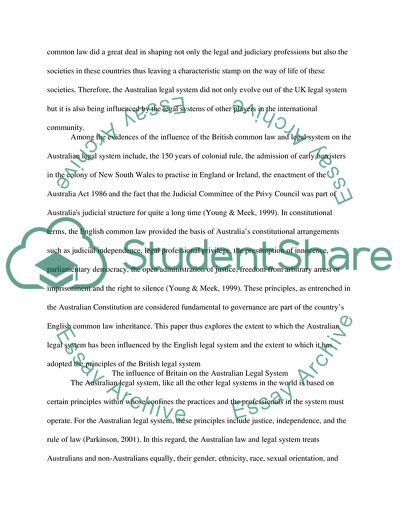Cite this document
(The Key Principles from British Law Essay Example | Topics and Well Written Essays - 2000 words, n.d.)
The Key Principles from British Law Essay Example | Topics and Well Written Essays - 2000 words. https://studentshare.org/law/1775933-what-are-the-key-principles-from-british-law-that-are-embedded-in-the-australian-legal-system-and-did-australia-totally-adopt-the-british-model
The Key Principles from British Law Essay Example | Topics and Well Written Essays - 2000 words. https://studentshare.org/law/1775933-what-are-the-key-principles-from-british-law-that-are-embedded-in-the-australian-legal-system-and-did-australia-totally-adopt-the-british-model
(The Key Principles from British Law Essay Example | Topics and Well Written Essays - 2000 Words)
The Key Principles from British Law Essay Example | Topics and Well Written Essays - 2000 Words. https://studentshare.org/law/1775933-what-are-the-key-principles-from-british-law-that-are-embedded-in-the-australian-legal-system-and-did-australia-totally-adopt-the-british-model.
The Key Principles from British Law Essay Example | Topics and Well Written Essays - 2000 Words. https://studentshare.org/law/1775933-what-are-the-key-principles-from-british-law-that-are-embedded-in-the-australian-legal-system-and-did-australia-totally-adopt-the-british-model.
“The Key Principles from British Law Essay Example | Topics and Well Written Essays - 2000 Words”. https://studentshare.org/law/1775933-what-are-the-key-principles-from-british-law-that-are-embedded-in-the-australian-legal-system-and-did-australia-totally-adopt-the-british-model.


